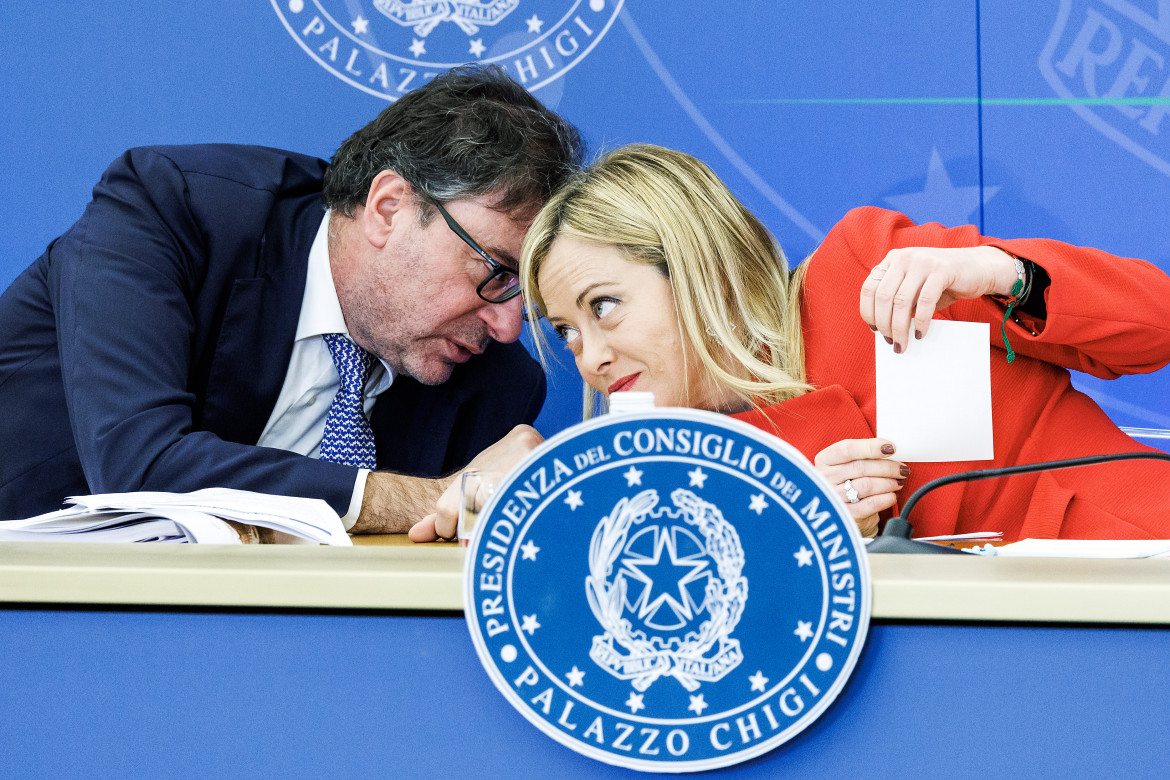Analysis
Italian banks scored huge profits from higher rates: Will they pay taxes?
Banks’ windfall topped €66.097 billion over 2022 and 2023, all arising from the increase in interest rates sought by the European Central Bank (ECB) to combat inflation: a policy that increased profits and kept wage increases to a minimum.

Will there actually be a tax on the banks' windfall profits, or some “agreed solution” in the name of the “nation”? What is at stake isn’t the specific and inevitably ridiculous formula that will end up in the budget law, but how the Meloni government will manage to avoid making the banks pay up when the banks don’t want to and the right-wingers don’t want to either. Economy Minister Giorgetti has said that no one is working on such a scenario. However, the internal debate has gotten everyone’s attention amid the otherwise sleep-inducing accounting exercise of preparing the budget law.
“Everyone will give a contribution to the country's growth,” said the Lega vice-prime minister, Matteo Salvini. By this “everyone,” Salvini seems to have also meant “craftsmen and workers.” “If we ask them for a contribution, the big banking and insurance groups, which might often pay lower taxes abroad than Italian workers pay in Italy, will also do their part.” If that’s what’s going to happen (it’s not), Salvini would be talking about some kind of tax on everyone.
There is plenty of confusion among the government coalition, between Forza Italia denying any form of tax on windfall profits and Fratelli d'Italia going to the banks with cap in hand. Economy Undersecretary Federico Freni has come up with a formula: an “agreed solution” on a contribution ”in the general interest.”
There are many formulas being floated: for instance, taxing the surplus profit and not the total profit, calculated on the average profits earned for a period of up to 10 years, with profits greater than the average being turned into a solidarity contribution. Or acting on the depreciation of losses, lengthening the time period needed to deduct them from taxes due – in practice an advance tax payment. Or an increase of 0.5 percent of the IRES surtax. Finally, for those who refuse to pay this solidarity contribution, there could be an obligation to set aside, either as reserves or social capital, a sum equal to up to 2.5 times the extra profits, just like last year.
All of these scenarios are nothing more than a drop in the ocean. Research from FABI published on Monday estimated that a 1 percent levy on the profits over the last two years, 2022 and 2023, would yield €661 million. If the tax was 2 percent, the banks would be paying €1.3 billion over a two-year period. We are talking about gross profits of €25.454 billion in 2022 and €40.643 billion in 2023, for a total of €66.097 billion. An unbelievable windfall arising from the increase in interest rates sought by the European Central Bank (ECB) to combat inflation: a policy that increased profits and kept wage increases to a minimum. It was a very successful operation. It’s not just the effects that are the problem – the real problem lies with the causes.
The government waited to see the ISTAT numbers from 1995 to 2023 and found that GDP growth in 2023 was cut from 0.9 percent to 0.7 percent, that the deficit-to-GDP ratio was at 7.2 percent and that public debt had fallen to 134.6 percent. All in all, nothing changed from what had already been decided. “The revision of the ISTAT data is a minor one and does not change the principles and framework of the structural budget plan (PSB),” Giorgetti stressed. The PSB will merely be “refined.” Like a work of art, one might say. In short, with the pretext of waiting to find out from ISTAT what it already knew, the government postponed the September 17 deadline by which it should have sent the PSB to Brussels. This will most likely not be the last postponement.
The Council of Ministers that was supposed to “really” launch the PSB has been postponed until Friday. On Tuesday, the government was set to meet with the “social partners,” with Giorgetti and Undersecretary Mantovano present. Little more will be said about the budget law than the rumors swirling like mad, cultivated by the government itself, starting with the total amount that will start at 25 billion. The money has to be found somewhere given the infringement procedure for an excessive deficit, which is sure to mean seven years of austerity. But they’ll be sure to give a bonus for Christmas and another one for the year so everyone can pretend things are going swimmingly.
Originally published at https://ilmanifesto.it/lo-spettro-dei-profitti-bancari-turba-il-sonno-del-melonismo on 2024-09-24
